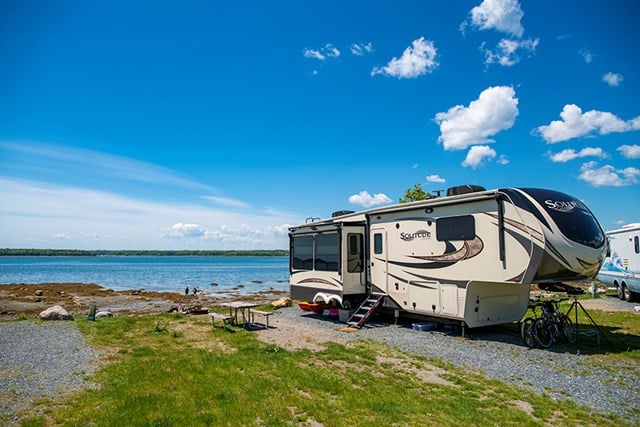The Bar Harbor/Oceanside KOA campground (Maine) has successfully obtained approval for its proposed expansion, which encompasses the construction of five deluxe RV cabin sites, replacing six existing RV sites. The expansion also includes the addition of three new RV sites, the removal of a tent site, the establishment of a three-stall bath house, and the relocation of two existing deluxe RV cabins.
According to The Mount Desert Islander, there was a discussion regarding the definition of “RV cabins” during the approval process. These units, which are camper trailers set up as permanent “cabins,” can still be registered and towed by a vehicle. The board emphasized that these units should remain classified as RVs to maintain the campground’s current classification.
The distinction between an RV and a cabin is crucial, as changing their classification to permanent structures would alter the classification of the entire campground. To maintain the current use of the campground, the board emphasized that these units should remain classification, and the KOA must provide vin numbers and proof of registration.
Elissa Chesler, planning board secretary, remarked on the transformation of the campground, likening it to a set of cottages. Board member Joe Cough added that the presence of additional structures doesn’t necessarily make it a permanent structure.
The expansion faced opposition from abutters represented by attorney John Cervone. Cervone highlighted the significant changes made by Oceanside KOA since its acquisition from Barcadia, particularly the introduction of cabins. He argued that these changes deviated from the traditional definition of a campground based on Bar Harbor’s land use.
Cervone also raised concerns about the environmental impact of the expansion, referencing the clearcutting of an abutting property line, which removed a natural buffer between the campground and neighboring properties.
Board Chair Millard Dority emphasized that the board’s focus was on town ordinances, and issues outside of this scope were not within their jurisdiction. Despite Cervone’s concerns, which were also detailed in a letter to the board, Dority clarified that KOA’s business model and advertising strategies were not the board’s concern.
The approval came with conditions, given that certain aspects of the application were incomplete. Oceanside KOA is required to submit a performance guarantee of $22,780, held in escrow for three years, and adhere to several other conditions before building permits are issued.
The board also determined the existing lot coverage for Oceanside KOA across various districts. Board Vice Chair Ruth Eveland expressed her concerns about the frequency of after-the-fact permits, emphasizing the challenges it poses for the community.
In May, Modern Campground reported on the initial application process, highlighting the potential benefits of the expansion for private campground owners and the importance of adhering to local regulations.
Featured image from Bar Harbor / Oceanside KOA Holiday.


